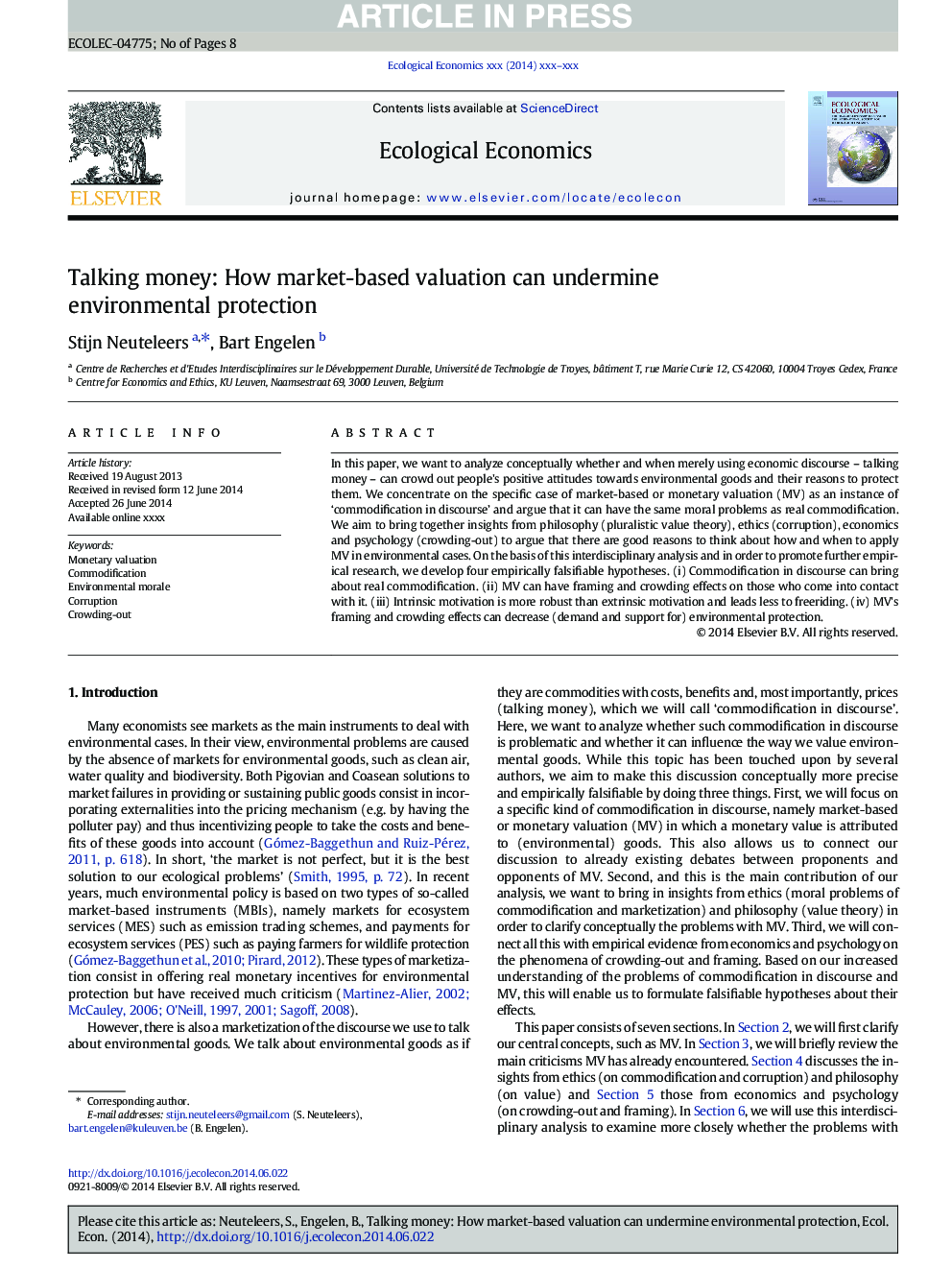| Article ID | Journal | Published Year | Pages | File Type |
|---|---|---|---|---|
| 5049296 | Ecological Economics | 2015 | 8 Pages |
Abstract
In this paper, we want to analyze conceptually whether and when merely using economic discourse - talking money - can crowd out people's positive attitudes towards environmental goods and their reasons to protect them. We concentrate on the specific case of market-based or monetary valuation (MV) as an instance of 'commodification in discourse' and argue that it can have the same moral problems as real commodification. We aim to bring together insights from philosophy (pluralistic value theory), ethics (corruption), economics and psychology (crowding-out) to argue that there are good reasons to think about how and when to apply MV in environmental cases. On the basis of this interdisciplinary analysis and in order to promote further empirical research, we develop four empirically falsifiable hypotheses. (i) Commodification in discourse can bring about real commodification. (ii) MV can have framing and crowding effects on those who come into contact with it. (iii) Intrinsic motivation is more robust than extrinsic motivation and leads less to freeriding. (iv) MV's framing and crowding effects can decrease (demand and support for) environmental protection.
Related Topics
Life Sciences
Agricultural and Biological Sciences
Ecology, Evolution, Behavior and Systematics
Authors
Stijn Neuteleers, Bart Engelen,
